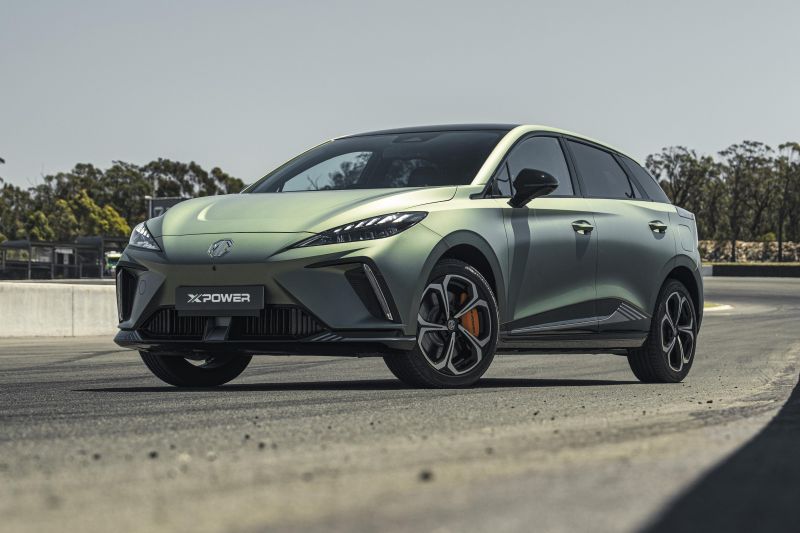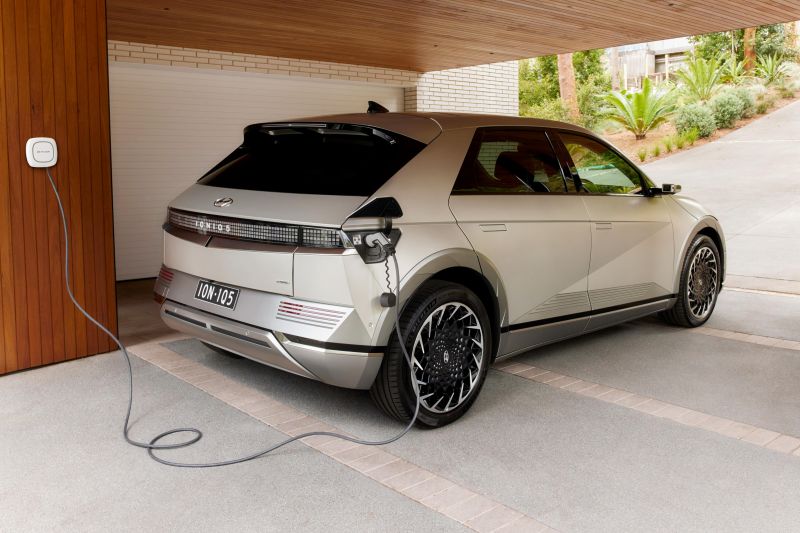The Australian Government won’t force consumers to buy electric vehicles (EV) or more efficient household appliances.
It has rejected recommendations from the Climate Change Authority, including sales targets for cleaner cars and other measures like a ban on home gas connections.
The Climate Change Authority is an independent agency that provides advice to the government regarding matters relating to emissions targets.
Energy Minister Chris Bowen said the government was focussed on “reliable and affordable” power.
42 recommendations were handed to the government in the Climate Change Authority’s annual progress report, with the government either agreeing, agreeing in principle or acknowledging only 39 of them.
Recommendations included a variety of measures ranging from banning gas connections to homes, developing advanced climate modelling capabilities and developing metrics to monitor the rollout of EV charging infrastructure.
It called on the government to implement a Fuel Efficiency Standard (FES) for new light vehicles “as soon as possible which progressively reduces the emissions intensity to zero by no later than 2040”.
“The government is committed, as you know, to the introduction of a FES for new light vehicles and we’re working through the design and implementation to make sure we get it right,” said Minister Bowen in his 2023 Annual Climate Change Statement in parliament.
“However, we haven’t set specific Net Zero targets for individual sectors, and it would be premature to set a new target for new light vehicles.
“We’re focused on how to get the best, most fuel-efficient vehicles to Australians so they have real choices and can save by using less petrol.”
The Greens have criticised the government’s response to the recommendations.
“It’s very disappointing that Labor won’t listen to the Climate Change Authority and help homes get off gas and get into electric cars,” said Greens leader Adam Bandt.
The latest position by the federal government is at odds with the ACT government, which introduced legislation last year banning the sale of all new petrol and diesel vehicles by 2035, as part of a wide-reaching electric vehicle strategy.
By 2030, it’s aiming for 80-90 per cent of new vehicle sales to consist of what it calls zero-emissions vehicles (ZEVs), or battery-electric and hydrogen fuel-cell electric vehicles.
This week, it was revealed the Albanese Government won’t deliver on its promise to take another next step towards introducing fuel efficiency standards locally in 2023.
Scott Nargar, senior manager of future mobility and government relations at Hyundai Australia, confirmed the news to CarExpert on the back of conversations with Minister for Climate Change and Energy Chris Bowen – and fears this delay could be the first of many.
“We’re not going to see the impact statement this year, which was due a couple of weeks ago,” he told CarExpert.
“We’re certainly not going to see draft legislation this year. The concerns are that we end up having delays, we go into quarter one [2024]. There’s a budget mid-year, there’s an election around May 2025.
“It’s going to take two sittings of parliament to get it through, that’s if it doesn’t get stuck in the Senate with negotiations with The Greens and others. My greatest fear for the country is that we don’t have emissions regulations by the end of this term of government.”
Australia and Russia are the only two developed nations with no fuel efficiency standard.
Carmakers have long pointed to our lack of such a standard as a hurdle to bringing the latest, most environmentally friendly vehicles Down Under.


